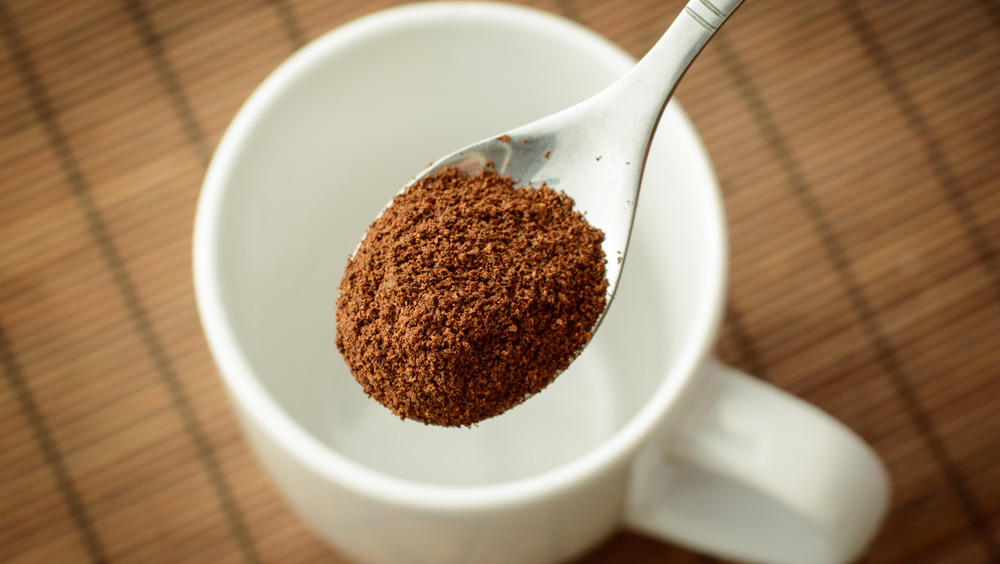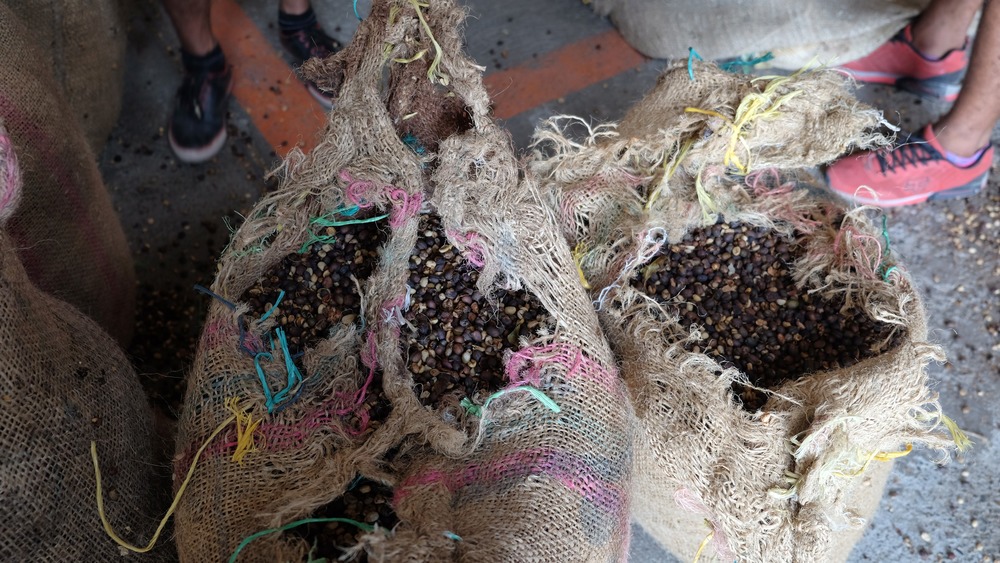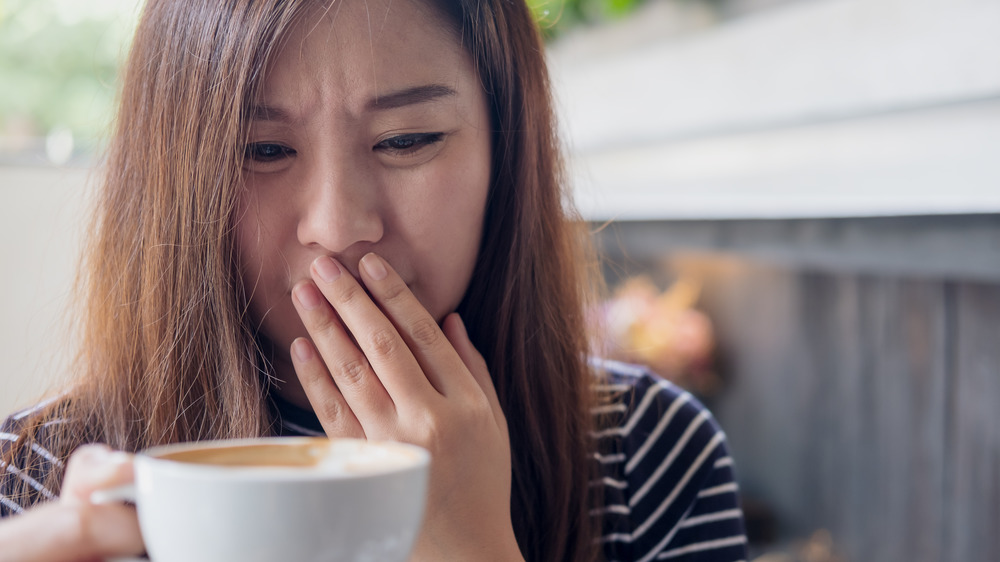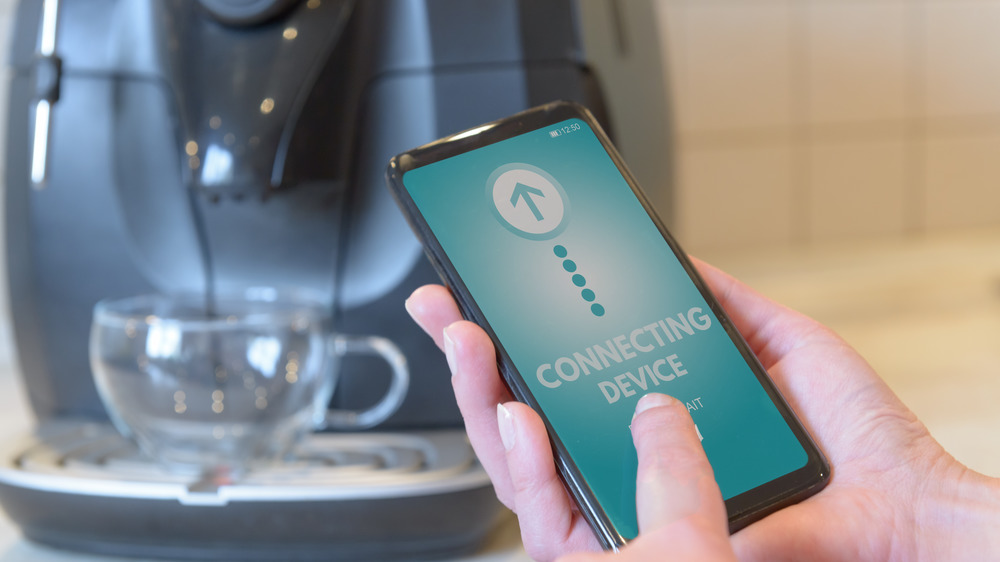Why You Should Think Twice Before Drinking Instant Coffee
Instant coffee is the poor relation of the coffee world. While the United States spent $30 billion on coffee in 2013, only three percent of that total went to purchasing instant coffee, according to Mic.
As Statista reports it, on average, Americans consume 1/10 of a cup of instant coffee per day, but that is one statistic that probably doesn't translate too well in real-life terms. Instead, it may help to picture one out of every 10 people drinking a cup of the stuff a day. The point is, instant coffee may not be the kind of product people boast about using, but nonetheless, there's still a market for it. Plus, it's surprisingly good in recipes ranging from baked goods to spaghetti sauce. Ina Garten uses it in her brownies, and some bartenders swear by it as the base for Irish coffee.
Tom Saxon, founder of Batch Coffee, told Mashed that he used to drink instant coffee as a starving student, saying it was "probably the reason why I really started to love coffee in the first place," and calling it "almost the gateway drug into the specialty coffee world." Today, however, he acknowledges that instant coffee can be problematic and says it's best that you avoid it when possible.
The way instant coffee is made is unappetizing
Saxon told Mashed that his eyes were opened to instant coffee's undesirable side when he visited a coffee farm in Panama. He explains that, "Instant coffee is made from brewed ground coffee that is dried in various ways creating water-soluble fragments or powder," but says that on his farm visit, he was shocked to see the low grade of coffee that was used to create the instant variety. Saxon describes how the beans were spread out to dry on a surface that was "loaded with bugs, stones and twigs," and says that these green beans will sometimes have to sit in a warehouse for years at a time before finally being sent on to industrial coffee processing plants.
Instant coffee is made from something Saxon refers to as "commodity coffee," which he describes as "the lowest grade raw coffee beans there is." He says, "Anything that will pass as coffee gets lumped into a sack and then sold throughout the world's exchange markets." Old, bug-infested coffee beans, wow, that sure sounds like a tempting basis for something you want to start off your day.
There are also issues with instant coffee's taste, health, and sustainability
Its dubious provenance isn't the only thing wrong with instant coffee. Once it arrives at the processing plant, Saxon says it "gets roasted to a profile that eliminates any of the subtle nuances that were left," and winds up with a taste he describes as "burnt and bitter."
Flavor issues aside, instant coffee can also pose a health risk. Since it is roasted for such a long time and at such a high heat, it contains fairly high levels of a possibly carcinogenic chemical called acrylamide. According to Medical News Today, instant coffee contains 358 micrograms per kilogram of acrylamide, which is nearly twice that of natural roasted coffee. As if that weren't enough to make you think twice about instant coffee, Saxon also points out that commodity coffee is farmed unsustainably, and the low price for which it is sold indicates that it's hardly a fair trade product, either.
Alternatives to instant coffee
So what should you do if your conscience, health, or squeamishness make instant coffee an undesirable option? While Saxon says "often there is no alternative [to instant coffee] when you're running late on a midweek morning," there are other options. After all, it doesn't take much longer to fire up trusty Mr. Coffee — less time, in fact, if you've got a programmable model and can arrange for the coffee to be brewed and ready when you wake up. Single-serve coffee makers are also fairly quick and can make your coffee while you brush your teeth or hunt for your car keys.
If, however, you still want some instant coffee on hand, either for cooking purposes, for ease, or because you may be traveling, Saxon says there are a few decent brands available. "Over the last few years," he explains, "there have been a few specialty coffee instants pop up on the market." He does admit they tend to be "astronomically more expensive per cup than your average shop-bought instant," but says "the coffee used is of a far higher quality." As long as this is something you're only using on an occasional basis, say, for an Irish coffee every now and then, the expense need not be such a deal-breaker. Plus, if better brands of instant coffee become more widespread, with any luck, the price may come down, too!



